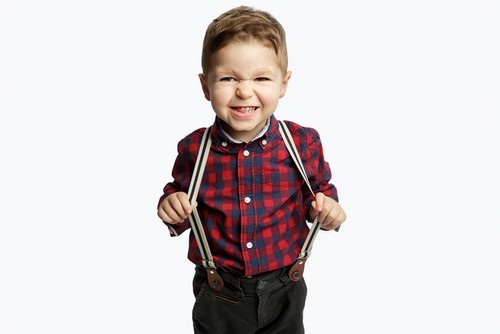The unexpected desire of the baby to check how strong is the authority and the extensible boundaries of our patience, perhaps the most difficult parental test.
Psychologists call this the first rehearsal of a future teenage denial period. It is important to go through it ourselves and help the child learn to defend their interests, while respecting the interests of others.
Sometimes it seems to us that a child with whom it was always possible to come to an agreement before, deliberately goes against everything in everything and tries to get us crazy. Attempts not to notice this, as well as to suppress the “children’s rebellion” with punishments and prohibitions, can only delay the important phases of the formation of the personality that children go through throughout their childhood.
Crisis 2 years: he spoke
The child first declares his desires by about two years, as soon as he begins to speak clearly. If before, when he declared them weeping, this caused us to immediately guess and satisfy the needs of the crumbs, now we are not ready to fulfill all his requirements with the same trepidation. You ask him to remove the toys, and he replies with confidence: “No.”
How to pull yourself together This is a great situation to explain to the kid who still does not know how to conduct dialogue, what and how important it is to say in this situation. Instead of attacking with a censure, smile: “I know what you really wanted to say:” Yes, mother, I will play a little and take it away. ” Engage your kid with this process in the form of a game. “We will put the bear on the sofa, and let him watch how we quickly do everything.” From time to time, through the mouth of a bear or any other favorite toy, you can voice how best to cope with the task. The baby is only two years old, and it is important to help him focus on what adults want from him.

What is behind the children’s whim
“The child begins to feel that he and his mother are not always one, and is trying to realize their independence with the help of the first“ no ”,” explains Olga Myaus, a child psychologist. “This is not always a comfortable process for him, so it’s important to show that he can have the right to his opinion, but you are nearby and still control his safety and well-being.” In addition, your baby might notice that if he obediently collects toys, you leave him alone and rush to cook dinner. However, it is enough to show obstinacy – and he finally gets your attention, even if expressed in a negative form. This is how children can report that they lack communication and are bored.
The crisis of 4 years: he is rude
Most of the kids already speak well, and if in some way they do not agree with us, then we increasingly hear insulting words from them. In addition, convincing you to do what you expect is no longer as easy as two years ago.
How to pull yourself together
On the way out of kindergarten, he demands ice cream from you. You firmly stand your ground: “Only after dinner.” And then, looking into your eyes, your angel declares: “Mom, you are a fool. Hate you”. In such situations, we get lost. Both rage and resentment burn us. How is it that the closest and dearest creature pronounces such painful words. Calm Your child, of course, did not want to offend you subtly, he also does not fully realize the power of these words.
Most likely, he heard them from peers, and in this case it is his way to relieve the accumulated stress and children’s bitterness. “We often talk about the crisis of the two-year-olds and do not pay enough attention to the more difficult stage – the four-year-old,” says psychologist, author of the book “When they are mad, not bad” (Henry Paul). – At this age, children with even greater strength strive for independence, but at the same time they feel their limited abilities. Even if you are very hurt by the words thrown in haste, never answer the child with insult. ”
What is behind the children’s whim
Returning home from kindergarten, the child feels tired and can be especially irritable and moody. The kid could be tired of lack of mobility, in this case, you should immediately go for a short walk or frolic with him at home. It may also be important for him to be alone for a while – let him do this.
Children cannot be in a state of quarrel for a long time, and even saying rude words to you, the baby will most likely very soon return to you as if nothing had happened. Sit embracing him on the couch, read a book, or play his favorite game. And after that, remind about what happened and say how painful it is for you to hear such words from him. Read or compose stories that illustrate polite and rude behavior. A child at this age is especially susceptible to fairy tales: he comprehends them,

Crisis 5 years: be responsible
Children continue to learn to cope with negative emotions, irritation and anger, but have grown up enough to understand the consequences of their behavior.
How to pull yourself together
Once again, you ask the baby to turn off the TV, and he throws the remote and runs out of the room. “Often in such situations, we try not to pay attention to what happened, believing that we have already achieved what we want – we tear the child away from watching cartoons,” says Henry Paul. – However, one cannot remain indifferent to the manifestation of child aggression.
If before the kid quickly forgot about what happened, then at this age he is able to realize that his rudeness and restraint is offensive to others and he will have to bear responsibility. ” It is important to insist in a calm voice that the child returns and turns off the TV himself. This gives him an important feeling that it is you who is in control of the situation. Your calm and confidence in turn will help the child calm down. Explain to him that you are very upset by what happened:
What is behind the whim
It’s not easy for adults to control themselves when rage smothers, and it is especially difficult for children. If a child shows aggression: throws objects on the floor, swings at an adult or another baby, this only means that he can not cope with emotions in any other way. “It’s important to talk with children about their feelings and find words that describe them,” says Olga Meaus. “Understanding that it is important to discuss and solve problems without offending anyone at the same time will take the children to adulthood.”
Crisis 6 years: obstinate preschooler
You have prepared dinner and ask the child: “Are you ready to help me set the table?” This has always been his favorite duty, but now, barely looking up from the designer, he throws: “I do not know if I am ready.”
How to pull yourself together
By the age of six, children are no longer so straightforward. They try to imitate adults and respond ironically. “If you want the child to fulfill your request, which he does not quite like, you should not provoke him by asking the questions:“ Will you do this? ” – considers Olga Meaus. – Try to politely but clearly ask him to complete the task. A question at this age is often seen as an invitation to discussion. ”
What is behind the whim
Children are strongly influenced by friends, and the caustic comments addressed to each other are the first attempts to joke and appear witty. These experiments, to be honest, are not always successful and are often taken out of video games. And even if we strictly control the time and activities of the child at the computer, we cannot resist the specific subculture of preschoolers, which includes rude jokes and nicknames. And whether we like it or not, it is also a stage of growing up.
“If we do not want to make a child an outcast, we must not prohibit him from communicating with peers in the way that is customary in their midst,” says Henry Paul. – However, it is important that he understands well: such jokes are unacceptable in adult society. Children at this age are well aware of this difference and are quite capable of quickly changing their communication style. ” Do not forget to encourage the baby for his politeness.



